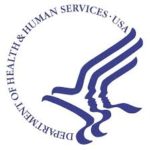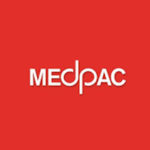The following is the latest health policy news from the federal government for November 3-9. Some of the language used below is taken directly from government documents.
ASH Advocacy
ASH has written to members of Congress to ask them to enact a two-year delay of Medicaid disproportionate share (Medicaid DSH) cuts that were scheduled to take effect on October 1, delayed by the current continuing resolution, and now scheduled to take effect after the expiration of that continuing resolution next Friday, November 17. See ASH’s letter here.
Congress
Senate Finance Committee
Earlier this week the Senate Finance Committee passed the Better Mental Health Care, Lower-Cost Drugs, and Extenders Act of 2023. The bill, which passed out of the committee by a vote of 26-0, would:
- eliminate $16 billion in cuts to Medicaid DSH for 2024 and 2025;
- soften the 2024 cut to Medicare physician payments by reducing the conversion factor by 2.15 percent rather than the 3.4 percent that CMS has finalized;
- extend expiring Medicare and Medicaid programs;
- expand mental health care coverage; and
- impose new limits on pharmacy benefit managers.
Senate leader Chuck Schumer has said he plans to take up a health care bill by the end of this year, though it is possible at least some of these provisions might be included in any spending package that passes. Find a section-by-section summary of the bill here.
Federal Funding Deadline of November 17
The current continuing resolution funding the federal government will expire next Friday, November 17. It does not appear at this time that either the House or the Senate have plans for the next government funding bill but it is widely expected that if there is another continuing resolution a delay of the Medicaid DSH cuts will be included. (As noted above, earlier this week ASH wrote to Congress urging it to pass a two-year delay of those cuts.)
2024 House Calendar
House majority leader Steve Scalise has released the chamber’s 2024 calendar indicating dates the House will be in session or members will work in their districts. Find that calendar here.
 The Courts/340B
The Courts/340B
At a time when drug companies are pressing the federal government to reduce the scope of the section 340B prescription drug discount program, a federal district court has ruled that the Health Resources and Services Administration (HRSA), which administers the program, may be interpreting the 340B statute too narrowly and excluding too many patients from participating in the program. The ruling turns on the question of what constitutes a “patient” of a 340B-participating provider. Learn more from the decision in the case of Genesis Healthcare, Inc. v. Becerra.
 Centers for Medicare & Medicaid Services
Centers for Medicare & Medicaid Services
- CMS has proposed a rule that seeks to help people with Medicare select and enroll in coverage options that best meet their health care needs by preventing Medicare Advantage and prescription plans from engaging in anti-competitive steering of prospective enrollees based on excessive compensation to agents and brokers. The proposed rule also seeks to improve access to behavioral health care by adding a new facility type that includes several behavioral health provider types to Medicare Advantage network adequacy requirements. The proposed rule addresses health equity by requiring Medicare Advantage plans to include a health equity expert on their utilization management committee, requiring that committee to conduct an annual review of prior authorization policies and outcomes based on various health equity considerations, and requiring the publication of the results of this analysis on the plan’s web site. In addition, the proposed rule would give Part D plans greater flexibility to substitute lower-cost biosimilar biological products more quickly for their reference products. The proposed rule also has implications for Programs of All-Inclusive Care (PACE), the Medicare Cost Plan Program, and health information technology standards and implementation specifications. Learn more about the proposed rule from this CMS news release; this CMS fact sheet; and this pre-publication version of the proposed rule. The deadline for submitting comments is January 5, 2024.
- CMS has announced a $709 calendar year 2024 application fee for institutional providers that are initially enrolling in the Medicare, Medicaid, or CHIP program; revalidating their Medicare, Medicaid, or CHIP enrollment; or adding a new Medicare practice location. This fee is required with any enrollment application submitted on or after January 1, 2024 and on or before December 31, 2024. Learn more from this CMS notice.
- CMS has begun displaying a “Birthing-Friendly” designation icon on CMS’s Care Compare online tool. The new designation identifies hospitals and health systems that participate in a statewide or national perinatal quality improvement collaborative program and that implement evidence-based care to improve maternal health. Learn more about the new “Birthing-Friendly” designation from this CMS news release.
- In “Important New Changes to Improve Access to Behavioral Health in Medicare,” a new entry on the CMS blog, the agency describes its most recent efforts to expand the behavioral health workforce, cover gaps in access to behavioral health care, and pay more accurately for behavioral health services. Find this commentary here.
- In a notice intended for states and their Medicaid programs, CMS has posted a document describing considerations for conducting Medicaid and CHIP renewals at the individual level. Find it here.
- CMS has sent an informational bulletin to state Medicaid and CHIP program administrators to provide additional tools for monitoring and overseeing managed care in the Medicaid and CHIP programs. The bulletin seeks to build on past CMS efforts in this area, including its introduction of a reporting template for states’ Managed Care Program Annual Report, the introduction of a web-based reporting portal for the collection of required managed care reports, and its provision of two technical assistance toolkits for states to use on behavioral health access and Medicaid and CHIP managed care quality strategies. Find this bulletin here.
- CMS has extended to December 31, 2023 flexibilities established for the Medicare Diabetes Prevention Program expanded model to give program suppliers additional time to resume providing services in person. Learn more about the extension from this Federal Register notice.
- In cooperation with an agency contractor, CMS is creating a technical expert panel to provide guidance to a project to develop a process measure capturing patient end-of-life care goals development. The panel seeks input from individuals with relevant experience and expertise, including those with backgrounds in palliative care, geriatric care, hospice care, health informatics, health care quality and administration, health care delivery, performance management, quality improvement, and the consumer/patient/family (caregiver) perspective. Learn more about the project, the qualities it seeks in potential panelists, the time commitment involved, and how to apply to participate from this CMS announcement. The deadline for submitting nominations is December 7.
- CMS has posted a template for qualified clinical data registries and qualified registries to use as guidance when submitting their data validation execution report. To find the template go here, scroll down to “full resource library,” and click “2023 MIPS Data Validation Execution Report (DVER) Template” for the downloadable file.
- CMS has posted a zip file that includes the 2024 Quality Payment Program Final Rule overview fact sheet and a set of FAQs. To find the zip file go here, scroll down to “full resource library,” and click “2024 Quality Payment Program Final Rule Resources” for the downloadable zip file.
- CMS has posted a file with the 2024 Quality Payment Program Final Rule MIPS Value Pathways (MVPs) policy guide. To find the zip file go here, scroll down to “full resource library,” and click “2024 QRP Final Rule MVP Guide” for the downloadable file.
- CMS has posted files with lists of MIPS APMs and their corresponding scores for improvement activities in the 2024 performance period. To find the zip file go here, scroll down to “full resource library,” and click “2024 MIPS APM Improvement Activities (IA) Assessments” for the downloadable zip file.
 Department of Health and Human Services
Department of Health and Human Services
- HHS’s Office of the Inspector General (OIG) has published “General Compliance Program Guidance,” a reference guide for the health care compliance community and other health care stakeholders. The guide provides information about relevant federal laws, compliance program infrastructure, OIG resources, and other information useful to understanding health care compliance. Find an introduction to the guide here and the complete guide here.
- HHS’s Office for Civil Rights released two resource documents – one for providers and one for patients – to help explain to patients about privacy and security risks to their protected health information when using telehealth services and ways to reduce these risks. Find the information for providers here and the information for patients here.
- HHS’s Agency for Healthcare Research and Quality has published the statistical brief “Characteristics Of 30-Day All-Cause Hospital Readmissions, 2016-2020.”
- HHS’s Health Sector Cybersecurity Coordination Center has published a notice about a relatively new ransomware group and strain known as BlackSuit that has significant similarities to the Royal ransomware family and that it considers likely to pose a credible threat to the health care and public health sectors. Learn more from this HHS notice.
HHS Newsletters
- CMS – MLN Connects – November 9
- AHRQ News Now – November 7
- HRSA eNews – November 2
Food and Drug Administration
The FDA announced that its Center for Devices and Radiological Health is seeking input from the public on advancing health equity and facilitating access to digital health technologies for detecting prediabetes and type 2 diabetes, especially among racial and ethnic minorities. Learn more about the specific issues on which the FDA seeks input from this agency notice. Comments are due by January 31, 2024.
 Medicare Payment Advisory Commission (MedPAC)
Medicare Payment Advisory Commission (MedPAC)
MedPAC’s commissioners met virtually last week. The subjects on the agenda of the two-day meeting were:
- rural emergency hospitals
- dual-eligible special needs plans
- MedPAC’s work plan for hospice issues
- Medicare coverage of and payment for software as a medical service
- favorable selection in Medicare Advantage
- network management and prior authorization and their impact on access in Medicare Advantage
Go here for a summary of the issues, actions, and links to the presentations delivered during the meeting and here for a transcript of the entire meeting.
Medicaid and CHIP Payment and Access Commission (MACPAC)
- MACPAC’s commissioners met virtually last week. The subjects on the meeting agenda were:
- improving the managed care appeals process
- Medicaid primary language and limited English proficiency data collection
- state and managed care plan strategies for unwinding the continuous coverage requirement in Medicaid
- medical care advisory committees and beneficiary engagement
- school-based behavioral health services
- Medicaid payment policies to support the home- and community-based services workforce
- optimizing contracts with Medicare Advantage dual eligible special needs plans
Go here for a summary of the meeting and links to the presentations delivered during the meeting.
- In a report based on case studies, MACPAC notes that the Medicaid landscape for doulas is quickly evolving as additional states adopt this benefit and as states make changes to existing policies. This report highlights the challenges of incorporating this non-clinical service into Medicaid and the assistance doulas need to support beneficiaries. Officials from the five states studied for this review report that doula coverage is an important intervention to improve maternal health. MACPAC also reports that some states and doula advocates are exploring ways to increase utilization, including efforts to publicize the availability of the benefit and to build the doula workforce. Learn more from the MACPAC issue brief “Doulas in Medicaid: Case Study Findings” and this summary of the issue brief.
- In a letter to CMS, MACPAC commented on a proposed rule to establish mandatory federal minimum staffing standards and Medicaid payment reporting requirements for nursing facilities. In its letter, MACPAC emphasizes the importance of considering all types of Medicaid payments nursing facilities receive when assessing Medicaid payments and recommends that CMS collect and report data on all costs related to the care of Medicaid-covered residents, not just on staffing costs. Find the MACPAC letter here.
 Stakeholder Events
Stakeholder Events
CMS – Hospice-Related Updates of the Medicare Home Health Prospective Payment System Final Rule Webinar – November 14
CMS will hold a webinar to review the hospice-related aspects of the calendar year 2024 Medicare home health prospective payment system on Tuesday, November 14 at 1:00 (eastern). During the webinar CMS will discuss the finalized Informal Dispute Resolution (IDR) process and the finalized Hospice Special Focus Program, including selection, public reporting, enforcement, completion, and termination. CMS officials also will respond to participant questions. To learn more about the webinar and register to participate, go here.
CMS – Physicians, Nurses, and Allied Health Professionals Open Door Forum – November 15
CMS will hold a physicians, nurses, and allied health professionals open door forum on Wednesday, November 15 at 2:00 (eastern). Go here to register to participate.
CMS – Patient-Focused Listening Sessions on Medicare Drug Price Negotiations – October 30-November 15
CMS will host a series of patient-focused listening sessions this fall as part of the Medicare Drug Price Negotiation Program. The virtual public listening sessions will provide an opportunity for patients, beneficiaries, caregivers, consumer and patient organizations, and other interested parties to share input relevant to drugs selected for the first round of negotiations. Learn more about the listening sessions, the schedule for these sessions, the individual drugs to be discussed at each, and how to participate from the CMS drug listening session web page.
CMS – Burden Reduction Conference – November 15
CMS will convene leadership from the federal government, health provider organizations, and the patient advocacy community to focus on opportunities across the health care enterprise to reduce administrative burden, strengthen access to quality care, and make it easier for clinicians to provide that care during a day-long virtual conference it will hold on Wednesday, November 15 beginning at 9:00 (eastern). Go here to learn more about the conference and find a link for registration.
CMMI – Making Care Primary Model Office Hours – November 21
CMS’s Center for Medicare and Medicaid Innovation (CMMI) will hold an office hours webinar on Tuesday, November 21 at 2:00 (eastern) to answer questions about the model in advance of the model application deadline of November 30. For resources on applying to participate in the model, an opportunity to submit questions in advance, and to register to participate, see this CMMI announcement.
CMS – Long-Term Services and Supports Open Door Forum – November 28
CMS will hold a long-term services and supports open door forum on Tuesday, November 28 at 2:00 (eastern). Go here to register to participate.
CMS – Healthcare Common Procedure Coding System Public Meeting – November 28-30
CMS will hold virtual public meetings from November 28 through November 30 to discuss its preliminary coding, Medicare benefit category, and payment determinations for new revisions to the HCPCS Level II code set for non-drug and non-biological products. Learn more about the meeting, why it is being held, its agenda, how it will be conducted, and how to register from this formal CMS notice.
CMS – Inpatient Rehabilitation Facility Prospective Payment System: Coverage Requirements Webinar – November 29
CMS will hold a webinar on inpatient rehabilitation facility prospective payment system coverage requirements on Wednesday, November 29 at 1:30 (eastern). During the webinar CMS will review inpatient rehabilitation facility prospective payment system coverage requirements from pre-admission to discharge and provide a refresher on existing payment requirements and answer common payment system questions. Go here to register to participate.
CMS – Medicaid and CHIP Renewals –December 6
HHS and CMS have been holding a series of monthly webinars on Medicaid and CHIP renewals to educate partners. Topic covered vary each month. The final webinar will be held on Wednesday, December 6 at noon (eastern) Go here to register to participate and go here for recordings, transcripts, and slides from past webinars.
HHS – Agency for Healthcare Research and Quality – Webinar on Child HCAHPS Survey – December 6
HHS’s Agency for Healthcare Research and Quality will hold a webinar on its consumer assessment of healthcare providers and systems child hospital survey database and narrative items on Wednesday, December 6 at 1:00 (eastern). Speakers will provide an overview of the Consumer Assessment of Healthcare Providers and Systems Child Hospital Survey (Child HCAHPS Survey), including highlights from current data, steps for and benefits of future participation, and details about the new narrative item set. Go here to learn more about the webinar and to register to participate.
MedPAC – December 7-8
The Medicare Payment Advisory Commission will hold its next public meeting on Thursday, December 7 and Friday, December 8. The meeting’s agenda and information about how to participate virtually have not yet been released but when they are they will be posted here.
CMS – Town Hall Meeting on FY 2025 Applications for New Medical Services and Technologies Add-On Payments – December 13-14
CMS will hold a virtual town hall meeting on Wednesday, December 13 and Thursday, December 14 during which organizations representing hospitals, physicians, manufacturers, and other interested parties may present comments, recommendations, and data to CMS’s clinical staff about whether individual services or technologies represents a substantial clinical improvement. The meeting will include a discussion of the substantial clinical improvement criteria for the FY 2025 applications for new technology add-on payments. Learn more about the meeting, why it is being held, what it will address, and how to participate from this CMS notice.
MACPAC – December 14-15
The Medicaid and CHIP Payment and Access Commission will hold its next public meeting on Thursday, December 14 and Friday, December 15. The meeting’s agenda and information about how to participate virtually have not yet been released but when they are they will be posted here.

 Centers for Medicare & Medicaid Services
Centers for Medicare & Medicaid Services Stakeholder Events
Stakeholder Events